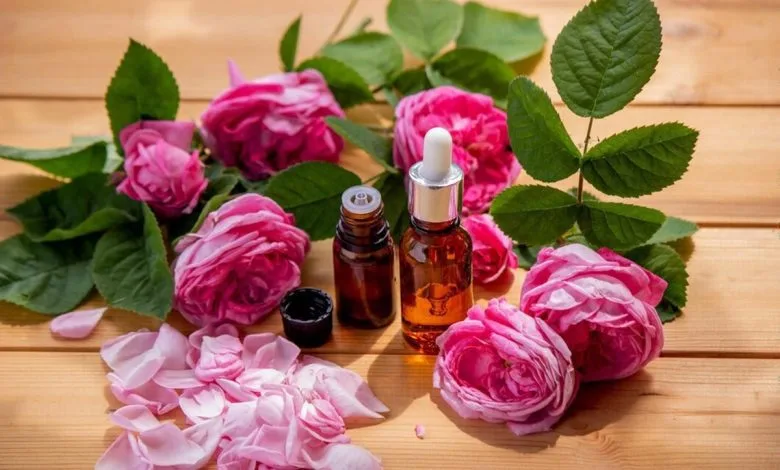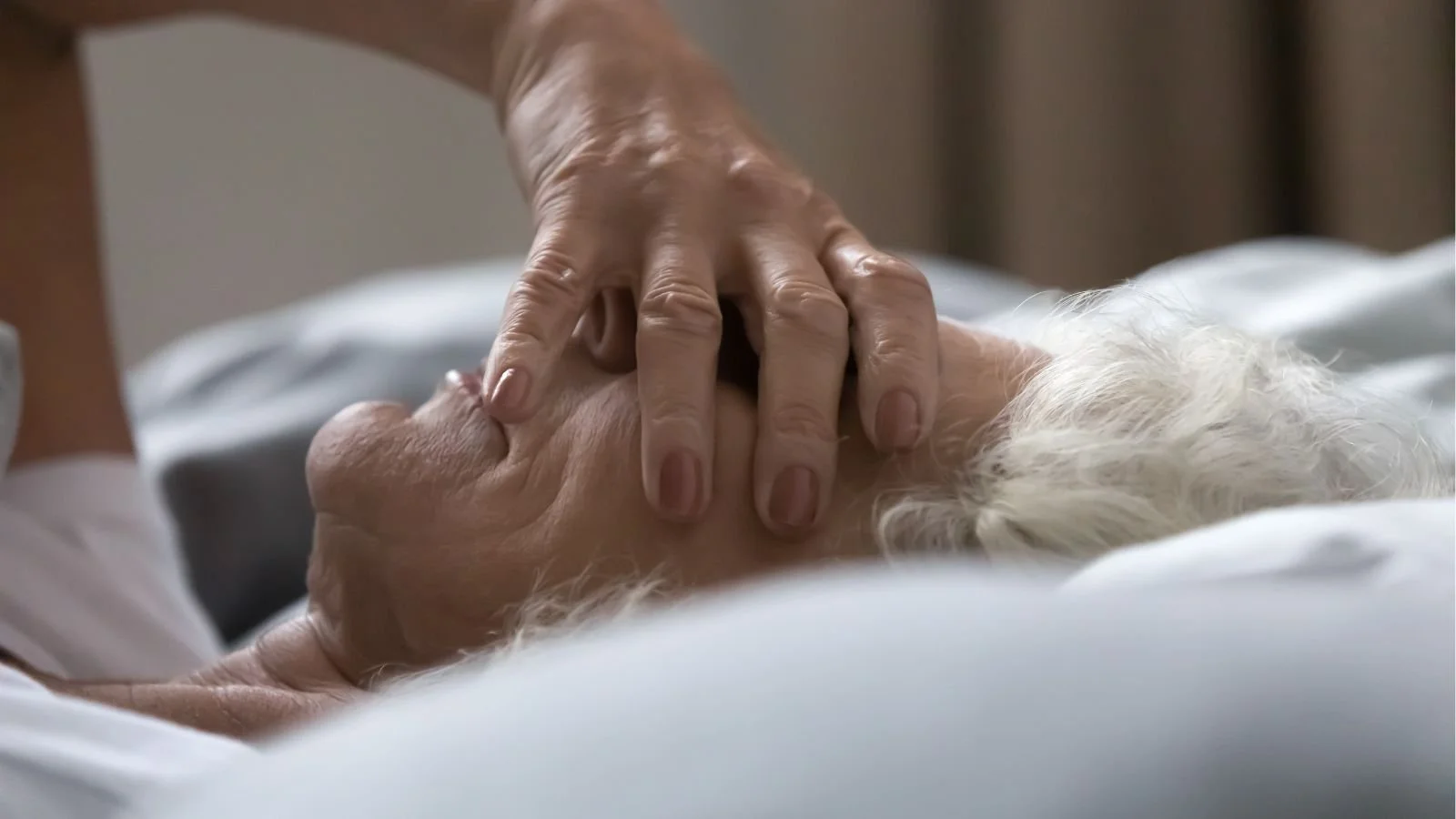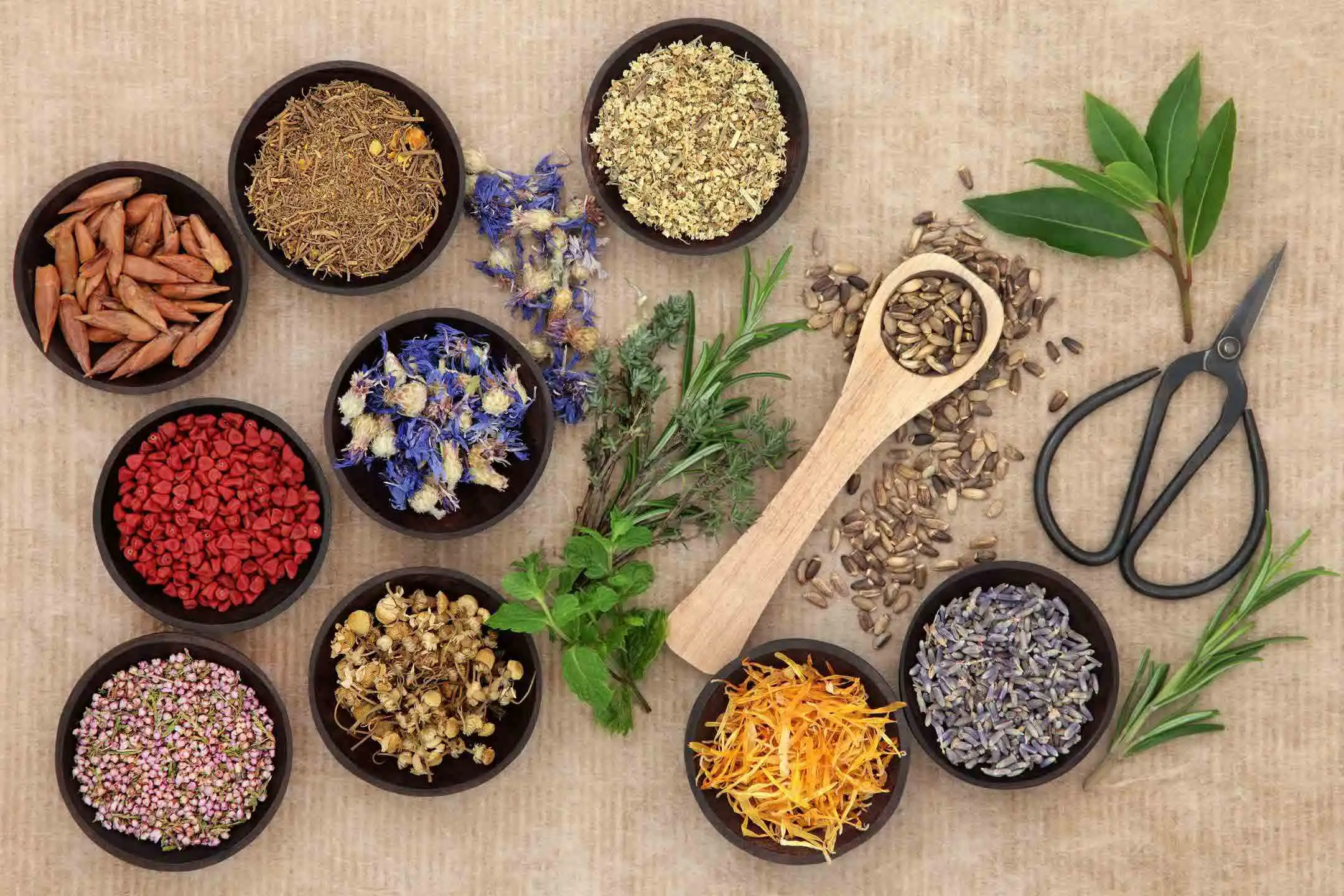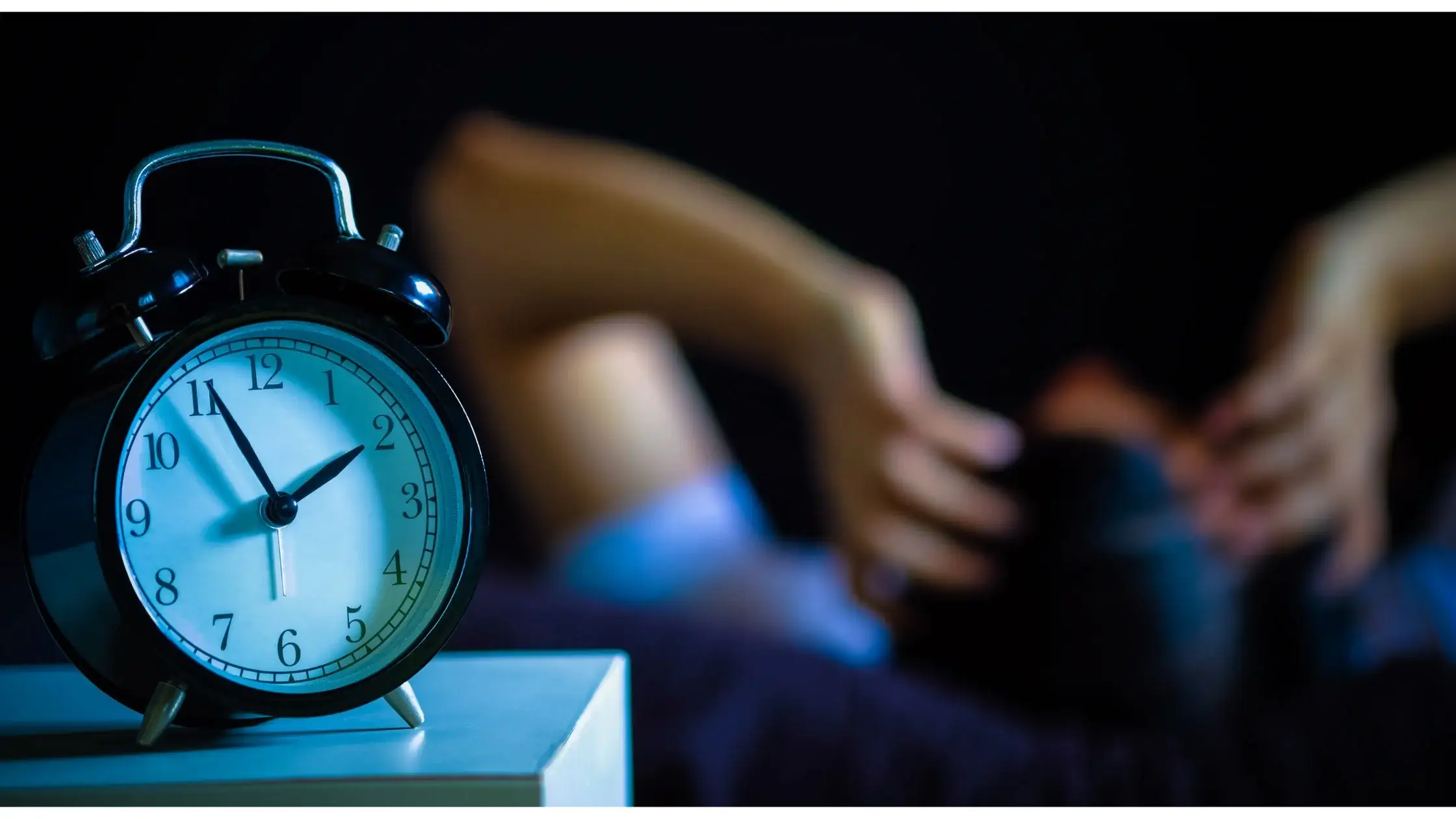
Home Remedies for Insomnia: Simple and Effective
How can I help my elderly sleep? Insomnia is a very common problem that is seen among people of all ages and can have a profound impact on physical and mental health. Insomnia is the cause of most mental and psychological disorders, depression and one of the causes of anger in elderly. For this reason, it is necessary to treat insomnia. In addition to medical treatments, some home remedies for insomnia can also be used to improve sleep.
Using home remedies for insomnia, such as drinking soothing teas such as chamomile and mint, creating a quiet and dark environment in the bedroom, and doing deep breathing exercises before bed, can help improve sleep quality for elderly with sleep apnea. Sleep disorders in the elderly can be caused by various factors, such as physical illnesses, side effects of certain medications, mental disorders, bad habits, chronic pain and discomfort, etc. In this article from the Human Health Mag website, we will examine strategies for improving sleep in older adults.
6 Ways Older Adults Can Improve Sleep Quality
As we age, there are natural changes in how we sleep, but waking up tired or unable to fall asleep is not normal. Insomnia is a common occurrence for many people, but for an elderly person, sleeplessness at night is especially deadly. In fact, research conducted by mental health researchers shows that 44% of seniors experience insomnia twice a week. Therefore, it is necessary to provide basic measures for a good night’s sleep for the elderly.

The good news is that there are strategies that can help seniors sleep better. Your sleep schedule may change as you age, but a good night’s sleep is important for everyone. In the following, we will suggest six strategies for better sleep in old age and a good night’s sleep.
- Spend enough time outdoors
Enjoying fresh air and sunshine during the day can help your nightly sleep pattern. These measures are very helpful in regulating your body’s rhythm and reminding you of the time. To get more tired by the time you go to bed, walking and swimming can be useful. Regular physical activity, especially walking, can help improve sleep quality. But it is better to avoid doing heavy exercise in the hours close to bedtime.
- Pay attention to your diet
Fill your plate with nutrient-rich foods, especially relying on proteins and heart-healthy fats can help you get a good night’s sleep. Consuming fruits is a good idea, as they provide minerals that prepare your muscles for a faster sleep. Before going to bed, drink a warm drink such as warm milk or green tea, which helps regulate your body’s production of melatonin. Eating light and healthy foods in the hours close to bedtime and avoiding caffeine and nicotine will improve sleep. Caffeine and alcohol use during the day also disrupts the natural rhythm of sleep, resulting in sleep disturbances.
- Stick to your routine
Among the six tips for better sleep in old age is to achieve a scheduled bedtime and help your body achieve a proper mechanism. For this purpose, it is better to go to bed and wake up at a specific time every day. This can help you feel more ready for sleep. Having a nightly routine that includes relaxing activities such as reading a book, listening to soothing music, and taking a warm bath can help improve sleep.
- Reduce your stress and anxiety
Having too many thoughts and worries can lead to a heavy mental load before bed. If you feel like you’re too busy, prioritize them and delegate some of them to others. If stress and anxiety still bother you, try meditating before going to bed. Finally, if you find it difficult to achieve your daily goals, seek help from a nursing care provider who can help you with transportation, housekeeping, and daily activities.
- Consult your doctor
If you continue to have trouble falling asleep and staying asleep, consult your doctor for medication and medical advice. Some medications can cause insomnia, so talk to your doctor about the side effects of your medications. Melatonin is commonly used in drug treatments. Melatonin supplements help regulate the body’s circadian rhythm and are helpful for people who have trouble falling asleep. In some cases, a doctor may prescribe sleeping pills for sleep apnea treatment for seniors. These medications should be taken under the supervision of a doctor and are usually recommended for short-term use.
- Prepare your environment for sleep
People should prepare their environment for a good night’s sleep. The bedroom should be dark, calm and cool. The choose a quiet, dark space for sleep. Turn off the TV and lights, reduce noise as much as possible, and if you have pets, put them in another area, and then lie down. Preferably sleep in bed and avoid lying on the sofa or easy chair. Using thick curtains and reducing disturbing sounds can help improve sleep.

Insomnia Home Remedies
Various studies show that insomnia can be treated at home with the help of some techniques. Home treatment of insomnia can be done by consuming some foods and supplements that have a sleep-inducing effect. Other relaxing techniques such as exercise and meditation can also help improve sleep quality. The best home remedies for insomnia include the following:
- Using natural medicinal supplements such as melatonin
- Oil therapy or aromatherapy
- Consuming herbal teas such as valerian and chamomile
- Using meditation and relaxation techniques
- Exercising
- Taking magnesium supplements
- Consuming foods that are rich sources of tryptophan and magnesium
- Massage therapy
A very important point about home remedies for insomnia is that different treatments and solutions are usually recommended based on the cause of insomnia, each person’s condition, age, and other such things. For example, home treatment for insomnia in infants is different from that in adults.
Sleep Home Remedies for Elderly
| Method | Description | Advantages | Disadvantages |
| Setting a sleep schedule | Going to bed and waking up at a set time every day, even on vacation | Creating a regular rhythm for your body | May be difficult at first |
| Creating a calm environment | Darkening the room, using thick curtains, reducing noise | Creating a suitable space for sleep | May require changes in your living environment |
| Reducing stimuli | Avoiding caffeine, nicotine, and alcohol, especially close to bedtime | Reducing the stimulation of the nervous system | May be difficult for some people |
| Regular exercise | Doing regular physical activity (except close to bedtime) | Improves sleep quality, reduces stress | Vigorous exercise close to bedtime may cause arousal |
| Healthy diet | Eating light and healthy foods, avoiding heavy and fatty foods before bed | Improves digestion, reduces indigestion | Needs to change eating habits |
| Relaxation techniques | Meditation, yoga exercises for seniors, deep breathing | Reduces stress, calms the mind | Needs to be practiced regularly |
| Elderly bathing | Warm bath before bed, follow bathing tips for the elderly | Relaxes muscles, increases body temperature | May cause awakenings during the night |
| Using aromatherapy | Using calming essential oils such as lavender and chamomile | Calming the mind, managing anxiety in seniors | May be allergenic for some people |
Natural Sleep Remedies for Elderly
Insomnia is a common problem for the elderly, and many of them struggle with this issue. For improving the sleep of the elderly, we can take help from different herbal compounds to improve their sleep quality. In addition to setting a regular sleep schedule and having proper sleep hygiene, consuming a series of herbal teas can also improve the sleep process of this group.

Valerian is one of them. Many studies show that you can get help from the valerian’s root tea to improve the quality of sleep. Having a low-fat diet and reducing the consumption of sweet foods can also help. Finally, one of the best options for the elderly is taking melatonin. Melatonin is a natural sleep supplements for older adults.
Physical Activity
Physical activity also plays a very important role in relieving insomnia. Various studies show that those who exercise regularly at a specific time every day have a much more comfortable and quality night’s sleep. Of course, exercising should not be close to bedtime. Walking, swimming, bodybuilding exercises and any other type of physical activity can help improve sleep quality. In addition, activities such as yoga, meditation and mindfulness techniques also have a significant impact on relieving insomnia and improving sleep quality.
Play a Music
Many studies have been conducted on the effect of music on improving sleep quality and it has been found that listening to music before bed is a widely used tool for improving sleep quality. Music has a great relaxing effect and can reduce tension and anxiety. Especially in infants, children and seniors, playing relaxing music or white noise music is very effective for home treatment of insomnia.
What Should We Eat to Get Rid of Insomnia?
One strategy for improving sleep quality and treating insomnia at home is to change your diet. Some drinks and foods have sleep-inducing properties. The best foods and drinks for insomnia at home include:
- Almonds contain magnesium and B vitamins, which help improve sleep quality
- Turkey contains the amino acid tryptophan, which increases melatonin production
- Chamomile tea
- Kiwi
- Sour cherry juice
- Fatty fish such as salmon or tuna
- Walnuts (Read benefits of eating walnuts for elderly)
Concluding Remarks
Insomnia has many complications and can greatly affect the quality of a person’s daily life. There are many options for home treatment of insomnia. The effectiveness of many of these treatments has been confirmed and you can try them to have a better quality of sleep.
If we want to answer the question of how long does it take for home remedies for insomnia to work? We must say that usually most home remedies need to be used over a long period of time to have the necessary effect. However, in cases where none of these are effective and insomnia becomes a serious problem, you should consult a neurologist for effective treatment.
Could you help us make this content even better? What do you love, and what can we improve? Share your thoughts below, feedback is the key to creating better content for YOU

Frequently Asked Questions
What is the Fastest Way to Cure Insomnia at Home?
One of the best home remedies for insomnia is through massage therapy. Various studies show that the stimuli created by massage for seniors can activate a series of neurochemical reactions in the body. The result of these reactions is a slowing of the heart rate and breathing, greater relaxation of the body, and a reduction in anxiety. All of these can greatly contribute to improving the quality of sleep.
Is Coffee Good for Insomnia?
One of the side effects of coffee is the caffeine it contains. Caffeine is one of the compounds that affects sleep and can cause insomnia. Consuming too much coffee can cause insomnia for anyone. But for people who suffer from insomnia, even small amounts of coffee can worsen their insomnia.
What Herbal Teas to Drink for Insomnia?
Herbal teas have been known for centuries as a treatment for insomnia. Some of the best teas recommended for home remedies for insomnia include chamomile, lavender tea, and valerian root. These teas have calming properties that can help improve sleep by reducing anxiety.
Is Rose water Good for Insomnia or Bad?
Rubbing some rose water on your hands and around your nose or drinking some rose water before bed can help relieve insomnia and improve sleep quality with its relaxing effect.
